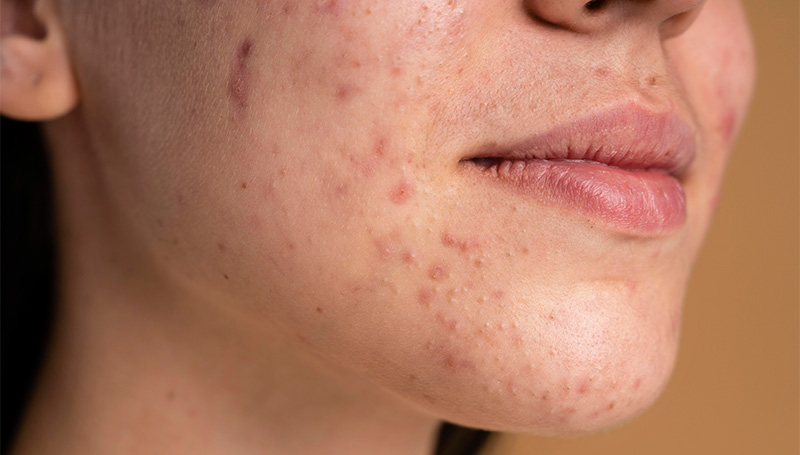Acne spots can be a source of frustration and self-consciousness for many individuals. Whether you’re a teenager or an adult, dealing with acne can be challenging. However, with the right knowledge and skincare routine, you can effectively prevent and treat acne spots, promoting a clearer and healthier complexion. This article will explore some practical tips to help you combat acne spots and achieve clearer skin.
Preventing Acne Spots
Keep your face clean: Skin exfoliation is the first step. Wash your face twice daily with antioxidant cleansers, detoxifying cleansers, or balancing cleansers to remove excess oil, dirt, and impurities. Avoid harsh scrubbing, as it can irritate the skin and worsen acne. Be sure to use lukewarm water and pat your face dry with a clean towel.
Avoid touching your face: Our hands come into contact with numerous bacteria throughout the day. Touching your face can transfer these bacteria, clogging your pores and leading to breakouts. Minimize touching your face, and if necessary, make sure your hands are clean.
Follow a healthy diet: A balanced diet rich in fruits, vegetables, whole grains, and lean proteins can support overall skin health. Avoid excessive amounts of processed foods, sugary snacks, and greasy foods, as they can contribute to acne flare-ups.
Stay hydrated: Skin hydration management is essential for preventing acne. Drinking an adequate amount of water helps keep your skin hydrated and flushes out toxins. Aim to drink at least 8 glasses of water per day for healthy-looking skin.
Limit sun exposure: While sunlight can temporarily improve acne, excessive sun exposure can lead to skin damage and worsen acne spots in the long run. Use broad-spectrum sunscreen with an SPF of 30 or higher when going outdoors, and wear protective clothing and a hat.
Treating Acne Spots
Over-the-counter treatments: Look for acne products containing ingredients like benzoyl peroxide or salicylic acid. These can help kill acne-causing bacteria and unclog pores. Apply them directly to the affected areas as directed.
Spot treatments: For individual acne spots, consider using spot treatments with ingredients like sulfur or tea tree oil. These can help reduce inflammation and promote healing. Apply a small amount directly to the blemish and leave it overnight.
Don’t squeeze or pick at your acne: It may be tempting, but squeezing or picking at your acne spots can lead to further inflammation, infection, and scarring. Let them heal naturally or seek professional help from a dermatologist.
Maintain a consistent skincare routine: Cleanse your face twice daily and follow up with a gentle toner to remove any remaining impurities. Use non-comedogenic cleansers and moisturizers to keep your skin hydrated without clogging pores. Incorporate exfoliation into your routine once or twice a week to remove dead skin cells and unclog pores.
Seek professional help: If your acne spots persist or worsen despite following a diligent skincare routine, consult a dermatologist. They can assess your skin condition and recommend prescription medications or more advanced treatments, such as chemical peels or laser therapy.
Preventing and treating acne spots requires consistency and patience. By adopting a gentle and consistent skincare routine, maintaining a healthy lifestyle, and seeking professional help when needed, you can effectively prevent and treat acne spots. Remember, everyone’s skin is unique, so it may take time to find the right combination of products and treatments that work best for you. Stay positive and embrace a holistic approach to skincare, and soon you’ll be on your way to clearer and healthier skin.




